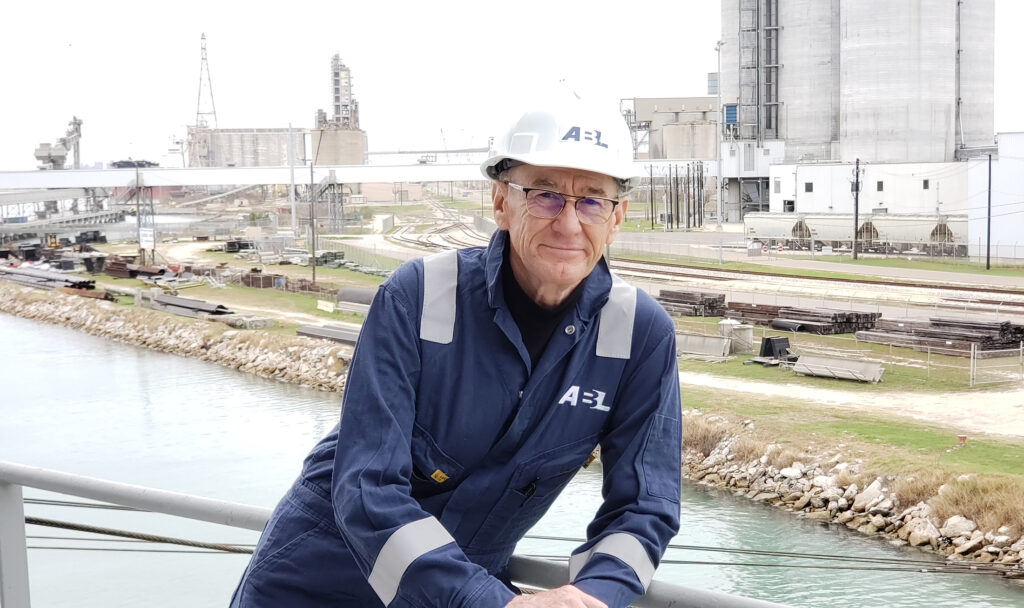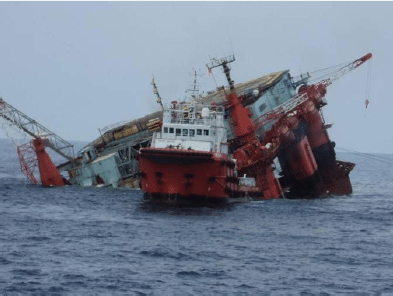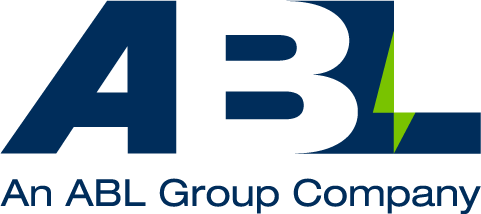30 Years at ABL: “It’s never felt like a job”
Kevin Highfield is a Master Mariner, managing salvage and P&I claims from ABL’s Houston office. In December 2022, Kevin celebrated 30 years at ABL Group. He tells us a bit about his career, his best advice, funniest moments and what the future holds.

Did you always know that you wanted to work in the maritime industry from a young age?
Kevin Highfield: Not really, I happened upon it by chance. They were advertising for cadets, and I thought, ‘Let’s give it a whirl.’ I went to sea at 18 years old, and spent 18 years at it, from Cadet up to Master. Then I came down the gangway and joined LOC Group [before it was acquired by AqualisBraemar to form ABL Group in 2020], so I’ve really only had two jobs. It’s worked out very, very well. To this day I still say, ‘I’m not sure what I want to do when I grow up’, you know? And now, all of a sudden, it’s almost time to retire.
What was it about LOC that made you want to come ashore?
KH: I saw an advert in a magazine when I was still sailing on ships. I didn’t really understand what LOC did back then, but I thought ‘Well, screw it, I’ll send them a resume’ – which was printed out on my little dot matrix printer from my home computer back then. A few days later my wife told me that she’d taken a call from this LOC in Houston. It worked out that I was flying home from Spain and I managed to stop in the LOC London office to be interviewed by two of the founders of LOC, David Pockett and John Mervyn Jones. I was working on passenger ships at the time, and they were saying ‘You’re not going to be going around in dress whites, you’ll be in a boiler suit on barge decks.’ Essentially, it won’t be glamorous.
I explained to them that on the ships I was working on, I spent most of my time in a boiler suit down in the engine room telling the engineers how to run the ship. I was used to it. And the interview obviously went well because I got the job and started work in 1992.
Did you ever think you’d be here 30 years later?
KH: Who does? I was thrown straight in, back in those days. The training method was to put you in at the deep end and you either sink or swim. Fortunately, I learned how to swim pretty quickly! LOC in Houston was a very small office in the 90s, there were only five technical staff, so we were all doing everything all of the time – warranty and energy stuff, as well as marine claims.
Throughout my career, I’ve basically been a jack-of-all-trades, so to speak. Currently, my job is predominantly marine claims and marine salvage, and I still do jobs large and small – a couple of weeks ago I was out doing a routine condition survey on a ship. It was the first one I had done for several years. But it was fun to do that! The old philosophy was – and still is – that no matter how high you get in the organisation, you should still be willing to go out and get your hands dirty on the front line. I think the founders of LOC definitely showed that. It was a good example to lead by, and it keeps you in touch with how you make the money.
It was difficult in the early days because I spent quite a lot of time away from my wife and two small children as LOC developed. Eventually, I became the Executive Vice President of Houston, running the marine team, and we grew to around 18 technical staff. You need to have a special mindset to survive and thrive in this business, particularly marine salvage on the marine claims side because the phone still rings at two o’clock in the morning. I’ve had a couple of cases recently where I was settling down for the night and the phone rings and you have to get out of bed, jump in the car, drive down to Galveston, get on a boat and go out to a ship. It doesn’t happen very often for me anymore, but it’s kind of fun in a way. I’m now nearer to retirement, but the job is still interesting.
What have you liked the most about working at LOC?
KH: It’s the variety. It’s never really felt like a job. Most days it suits my personality because you never know what the next case will be. I absolutely hate planning anything more than a few days in advance, because I enjoy spontaneity, and that’s why the job has been so interesting. Like recently, I was testifying as an Expert Witness in a court in Mexico because a captain had been in jail for 14 months on drug charges. To our surprise, we succeeded, and the captain was released. That was fantastic! And then last August, I was aboard the historic Battleship USS Texas sailing down the bay for restoration. That was great because we had everything so well prepared – it was a nice day out!
Of course, there are jobs where you’re in difficult situations too, perhaps with tricky shipowners, or where the cards don’t fall as expected. But that’s the balance. I worked a case recently with the Mississippi River figuring out all the ships that have problems with a berth – and that’s like detective work. Sometimes it can feel like forensic examinations on voice data recorders (VDR). I had to go out to a ship last month via helicopter, and I got the VDR running while I was on board. They hadn’t been able to run it, and I played it for the poor Captain, and they realised what they’d done wrong. The superintendent wasn’t very happy, but at least we got it going. So I’ve reached the stage of my career where it’s very nice that people actually listen to me sometimes.
Has the industry changed a lot since when you first started out?
KH: A lot of the technology has changed. But in a way, the things we do and the way we do them is the same. Ships still run aground; cargo still gets damaged. There are still marine claims for collisions, even with a lot more electronic data. There are still arguments that seem to finish up in court. When it comes to towing, we have new technologies and a lot more Dyneema-type lines instead of wires, which is interesting, but the basic principles remain the same thing.
I guess I’m old now, but the trick about not getting old is to not be resistant to change. I tried to keep up with new technology and I look at it with an open mind. Technology can make things better, but ultimately, ships still can get into trouble. They still collide, they still do silly things – all of which keeps us in business.
How has the company changed?
KH: AqualisBraemar acquired LOC a few years ago. It was good to get to know Reuben [Segal] and the team that’s running ABL Group now. I liked them straight away and they’re doing a good job. It’s been interesting because I now share an office with Guy Noble here in Houston, and Guy’s been a competitor for almost as long as I’ve worked for LOC. With the merger, we’re now on the same team, so it’s nice to sit down and compare notes – even though he’s energy and I’m marine, we’ve got a huge overlap in what we do. It might sound like marketing BS, but it’s true. It’s brought two strong parts of two good companies together, and, provided you keep everyone happy, that’s a pretty good combination.
If you had to give one piece of advice to somebody that was just starting out at ABL Group now, what would that be?
KH: One of the most important things is to never be afraid to ask a question. The things you think are the most stupid questions are often the best ones. Also, no matter how far up the ladder you go, never be afraid to ask for a second opinion if you’re not sure. Because no matter how far you get, we are all still learning.
When you look back at your career, is there one favourite memory that makes you smile?

KH: We did the Jupiter 1 wreck removal in Mexico 10 years ago and I was absolutely shaking when they asked me to give a reserve on the cost. It was the first time I’ve ever done a reserve so high – I suggested they allowed $85 million. It was a major job, and we actually came out slightly under the reserve when the job was finished. I look back on things like that and think, ‘that was a gold star moment’.
There’s lots of little memories too. We did a collision case where my trial testimony went really well and I had the whole court laughing with me during my cross-examination, which was absolutely brilliant. My client got off 0% fault in the case – so it was a great result, and it’s little things like that which make you smile.
By the same token, there are also cases that didn’t go well, and you tend to remember those just as much as you remember the good ones – perhaps more. That’s another lesson, learn from your mistakes. There are things I think, ‘I wish I hadn’t done that’. But you live and learn, put them down as near misses and move on to the next one.
What does the future hold for you?
KH: Well, of course, retirement is coming up, but I’ve got cases which will probably go on for several years yet. I’d like to keep a few cases going to keep me interested. I’m not going to be bored when I retire. I’ve got plenty of things to do, places to go and people to see. But I’ll certainly still be involved for the foreseeable future.
Are you ready to kick-start your journey in maritime and marine advisory? Check out our current opportunities with ABL Group.
